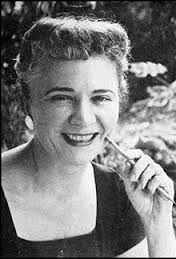John Myers Myers (1906-1988) was born on this date, January 11. He is best remembered as the author of Silverlock. If you haven’t read it, you should. Poul Anderson, Jerry Pournelle, and Gordon R. Dickson number among its fans.
 But that’s not the book I want to talk about today.I had seen copies of The Harp and the Blade floating around when I was in high school, but I didn’t know much about it. I was more into science fiction at the time and didn’t read it. (I didn’t read Silverlock until I was in college.) Deuce Richardson recommended it to me recently. So I read it for this post.
But that’s not the book I want to talk about today.I had seen copies of The Harp and the Blade floating around when I was in high school, but I didn’t know much about it. I was more into science fiction at the time and didn’t read it. (I didn’t read Silverlock until I was in college.) Deuce Richardson recommended it to me recently. So I read it for this post.
I wish I had read it years ago. I started and finished the book in under 24 hours. It’s a great medieval fantasy. Finnian is a wandering Irish bard making his way through France. The book indicates the year is about 950 or so. After watching a local warlord murder a young man in a tavern, he goes on his way. Later that night a Druid curses him by making him anyone in need as long as he stays in the druid’s land.
Soon the curse begins to take effect. Finnian finds himself aiding another man named Conan, who is trying to establish his own domain. No, not that Conan. This story is set in France, not Aquilonia. Finnian only wants to go on his way. It’s not going to be that easy. Every time he thinks he is free to move on, someone needs his aid.
The story moves briskly, with more action and character development than many fantasy novels twice the length. There are battles and personal feuds, songs and poetry, and romance. Not everything ends well.
If you like historical fantasy, with likeable characters, dastardly villains, and lots of action, check this one out.
 C. L. Moore (1911-1987) was born on this date, January 24. Shen was one of the greatest writers of the fantastic in the 20th Century.
C. L. Moore (1911-1987) was born on this date, January 24. Shen was one of the greatest writers of the fantastic in the 20th Century.









